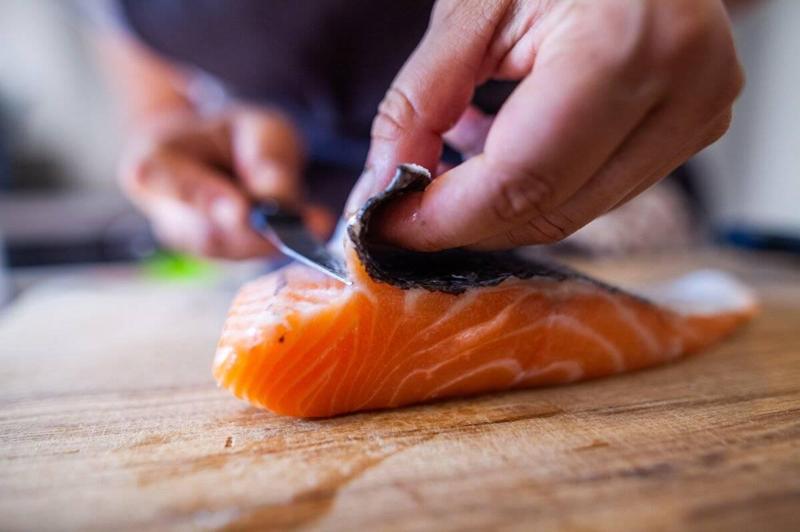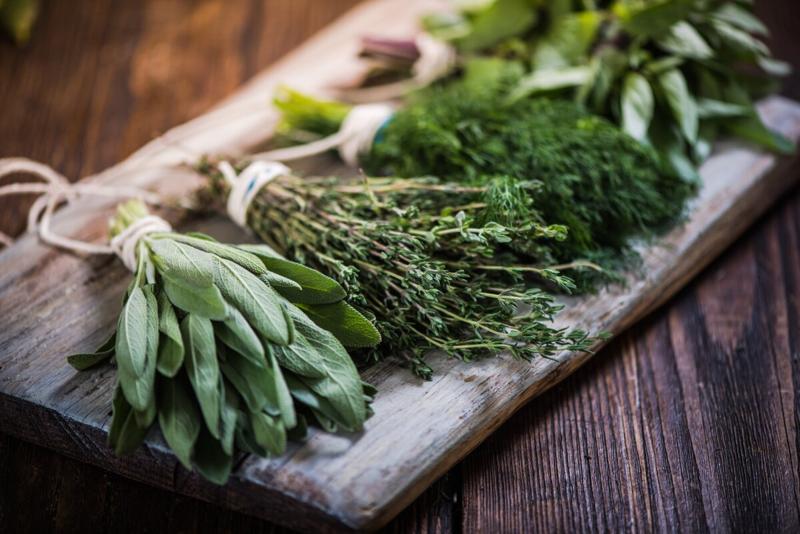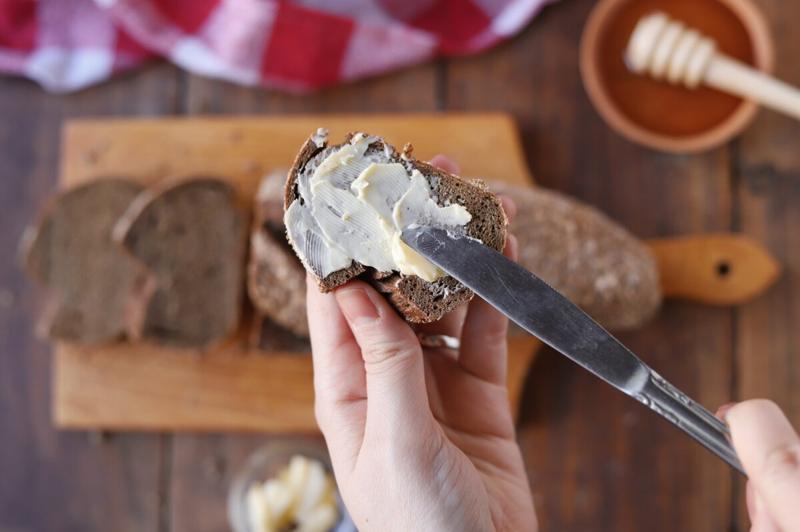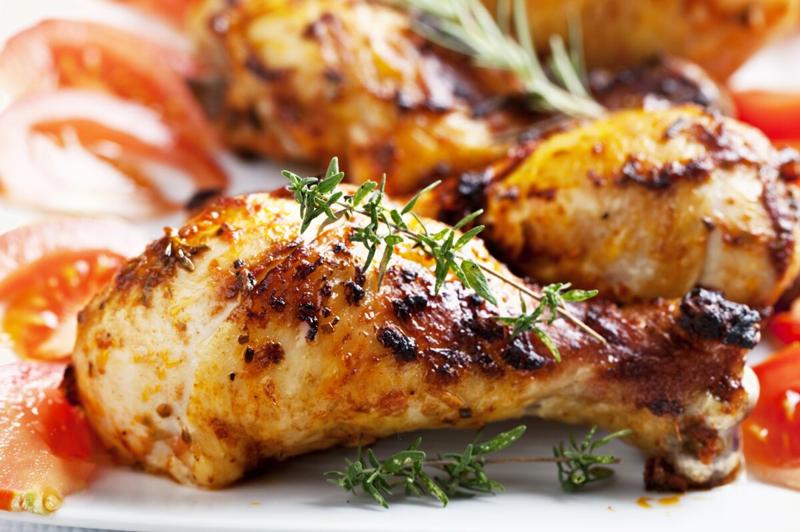Dr. Weil's Anti-Inflammatory diet is an ideal option for individuals who aim for a balanced diet that can reduce inflammation and enhance overall well-being. This diet emphasizes the intake of unprocessed foods, lean proteins, healthy fats, and a generous amount of antioxidant-rich fruits and vegetables.
What Is Dr. Weil’s Anti-Inflammatory Diet?
Crafted to mitigate chronic inflammation and lower the risk of associated conditions like heart disease, specific cancers, and Alzheimer's disease, the anti-inflammatory diet is an eating pattern. Dr. Andrew Weil, a doctor specializing in integrative medicine and renowned author on topics related to food, aging, and healthy living, is the originator of this diet.
Primarily grounded in the Mediterranean diet, the anti-inflammatory diet incorporates additional foods like green tea and dark chocolate. Emphasizing a diverse array of fresh foods, the program places a particular focus on fruits and vegetables, which are rich sources of phytonutrients. These natural chemical compounds found in plants are believed to offer health benefits and contribute to disease prevention.
Weil suggests the consumption of foods rich in omega-3 fatty acids and advocates steering clear of processed foods entirely. Unlike some websites that propose short-term solutions like 21-day anti-inflammatory diet plans, Weil's approach to the anti-inflammatory diet is geared towards fostering lifelong changes rather than offering temporary fixes.
The guidelines become more detailed when focusing on specific dietary components. For instance, regarding carbohydrates, the recommendation is to opt for healthy sources such as whole grains, beans, squashes, and berries to maintain stable blood sugar levels.
How Does Dr. Weil’s Anti-Inflammatory Diet Work?
Cut down on saturated fat, which is in butter, cream and fatty meats, and steer clear of margarine, vegetable shortening and foods containing partially hydrogenated oils.
Get your dietary fat from extra-virgin olive oil, avocados, nuts, flaxseeds and omega-3 fatty acids, which have been shown to reduce inflammation.
The plan stresses substantial intake of omega-3s from cold-water fish, such as wild salmon, sardines and herring.
If you're not eating oily fish twice a week, Weil recommends a daily fish oil supplement that contains two omega-3s: eicosapentaenoic acid (EPA) and docosahexaenoic acid (DHA).
Your protein sources on this diet include fish, yogurt, cheese and beans, especially soybeans.
Eat a variety of colorful produce, especially berries, tomatoes, orange and yellow fruits, cruciferous veggies and dark leafy greens. Whenever possible, choose organic to avoid pesticides. (The Environmental Working Group's “Dirty Dozen" and "Clean 15” lists identify foods with the most and least pesticides, respectively.)
Choose tea over coffee, particularly the white, green and oolong varieties.
Weil also permits plain dark chocolate (with a minimum cocoa content of 70%), which contains antioxidants and has been shown to improve cardiovascular health.
Red wine is allowed in moderation (no more than one to two glasses daily).
The anti-inflammatory diet is based on a daily intake of 2,000 to 3,000 calories, depending on your gender, size and activity level. While it does not prescribe strict rules about calories or portion sizes, the general guidelines are as follows:
40% to 50% of calories from carbs.
30% from fat.
20% to 30% from protein
Weil suggests striving for a mix of all three macronutrients at each meal.
Can I Lose Weight on Dr. Weil’s Anti-Inflammatory Diet?
Short-Term Weight Loss
It’s possible that including more anti-inflammatory foods in your diet could contribute to short-term weight loss, but the evidence is limited.
According to one study, 42 participants who followed a reduced-calorie, anti-inflammatory diet for six months lost an average of 16 pounds. In addition to losing weight, the group decreased their waist circumference, lowered their BMI and reduced their amount of visceral fat, the deep fat that can enter the organs and is especially hazardous to health (1).
Long-Term Weight Loss
Some research supports that the Mediterranean diet, which Dr. Weil’s is modeled after, might help with long-term weight control.
According to a study that followed 32,119 participants for 12 years, participants who weren't overweight or obese at the beginning of the study and strictly stuck to the Mediterranean diet gained significantly less weight, were less likely to be diagnosed with obesity after six to 20 years and had a smaller change in waist circumference compared to those who did not adhere to the Mediterranean diet as closely (2).
Weight Maintenance and Management
Adopting the anti-inflammatory diet – and staying on it consistently – could help you manage your weight, especially if your previous diet was high in sugar or saturated fat.


Do: Get your omega-3 fatty acids.
How to Get Started on Dr. Weil’s Anti-Inflammatory Diet
“As with any change, it's always best to start with one or two new things,” Javelli says. “If you currently only eat small amounts of fruit and vegetables, then try doubling that amount and working up to the recommended seven to nine servings per day.”
Adding a vegetable to breakfast, such as tomatoes or broccoli scrambled with eggs, or having a green smoothie with berries and spinach or kale, are fun ways to work more produce into your menu.
What Does Dr. Weil’s Anti-Inflammatory Diet Cost?
You don't have to purchase anything except for fresh ingredients and potential supplements. Pricier components of the plan include:
Organic produce, which is pricier than standard fruits and vegetables.
Wild-caught fish, which is generally more expensive than farmed fish.
Supplements like fish oil and vitamin D, which can be an ongoing expense.
“This particular version of an anti-inflammatory diet encourages intake of organic foods, which also adds to the price,” Javelli notes. “It’s important to remember that any increase in fruit and vegetable intake has excellent health properties – whether the foods are organic or not.”
Is Dr. Weil’s Anti-Inflammatory Diet Easy to Follow?
The anti-inflammatory diet provides plenty of flexibility since there are no strict meal plans. You'll primarily have to adjust your diet to make room for plenty of fruits and vegetables, whole grains and lots of fish or fish-oil supplements.
Family friendly: Family members can easily all eat the meals together with little or no modification. The food options are healthy and balanced enough for all ages.
Planet friendly: The diet considers the environmental effects of food choices. It’s largely plant-based and/or the foods are mainly sustainably grown/produced.
Vegan or vegetarian friendly: Recipes can be easily modified for a vegan or vegetarian diet.
Gluten-free friendly: Recipes can be easily modified and still follow a gluten-free diet.
Halal friendly: Recipes can be easily modified and still follow the diet.
Kosher friendly: Recipes can be easily modified and still follow the diet.
Who Should Not Try Dr. Weil’s Anti-Inflammatory Diet?
People with high potassium levels due to kidney disease or certain medications may need to adjust the amount and serving size of fruit and vegetable servings or choose lower-potassium versions, such as apples, carrots, blueberries and red cabbage.
Individuals with inflammatory bowel disease may benefit from this diet. However, during a severe flare, you may need to choose cooked or peeled versions of fruits and vegetables and almond or cashew butter instead of whole nuts.
People with fish, shellfish or nut allergies can still benefit from other aspects of the eating pattern.
Pros
Nutritionally sound.
Coaching and/or group support available.
Filling – it's rich in high-fiber foods.
A clearly defined plan with recipes.
Has proven health benefits.
Diverse foods and flavors.
Cons
Tedious portioning, meal planning or prep.
Lots of rules to remember.
What Can I Eat? Do's and Don'ts of the Dr. Weil’s Anti-Inflammatory Diet
Nutrition experts emphasize the importance of satiety, the satisfied feeling that you've had enough. You shouldn't feel hungry on the anti-inflammatory diet, which allows for 2,000 to 3,000 calories per day. Plus, you should be getting lots of fiber, which helps stave off hunger.
Foods to Eat
High-fiber, low-glycemic carbs, like beans, lentils and brown rice.
Colorful fruits and vegetables, like tomatoes, berries and leafy greens.
Fish, preferably oily, wild-caught and cold-water varieties.
Extra-virgin olive oil, avocado and nuts for healthy fat.
Cruciferous vegetables, like cabbage.
Vegetable protein from beans and soybean products, like edamame, tofu and tempeh.
Anti-inflammatory and healthy spices, like garlic, turmeric, cinnamon and ginger.
Foods to Avoid (or Limit)
Luncheon meats, bacon, snack chips and other processed foods.
Baked goods made with refined flours.
Cakes, doughnuts and other foods high in trans fats.
Fatty meats.
Full-fat dairy.
Products that contain high-fructose corn syrup, including soft drinks.
Vegan and Following Dr. Weil’s Anti-Inflammatory Diet
The Andrew Weil food pyramid calls for dairy, omega-3-rich eggs, skinless poultry or lean meat only once or twice a week. You can easily eliminate these foods or opt for suitable vegan replacements. See all vegan diets.
Vegetarian and Following Dr. Weil’s Anti-Inflammatory Diet
On Dr. Weil's diet, the primary sources of protein are fish and shellfish consumed two to six times per week and whole soy foods, beans and legumes once or twice a day. Therefore, pesco-vegetarians will find this diet to be a breeze. See all vegetarian diets.
Gluten Free and Following Dr. Weil’s Anti-Inflammatory Diet
The anti-inflammatory food pyramid allows three to five servings of whole grains daily and two to three servings of al dente pasta a week. Choose a gluten-free, whole-grain pasta, and fill your pantry with gluten-free grains, such as quinoa and wild rice, to maintain your lifestyle and reduce inflammation. See all gluten-free diets.
Halal and Following Dr. Weil’s Anti-Inflammatory Diet
Because Dr. Weil's anti-inflammatory diet is plant-based, you will undoubtedly be able to maintain your halal lifestyle while on it. See all halal diets.
Kosher and Following Dr. Weil’s Anti-Inflammatory Diet
Kosher foods should easily fit into the Dr. Weil anti-inflammatory diet. Visit your favorite source for kosher foods, and feel free to splurge since you'll be eating them so infrequently. You'll only consume dairy products, eggs, skinless poultry or lean meat once or twice a week. See all kosher diets.







